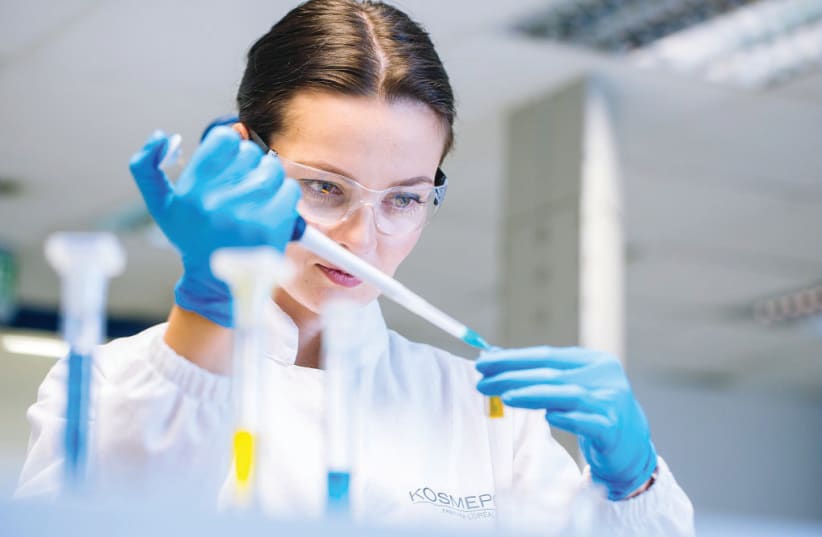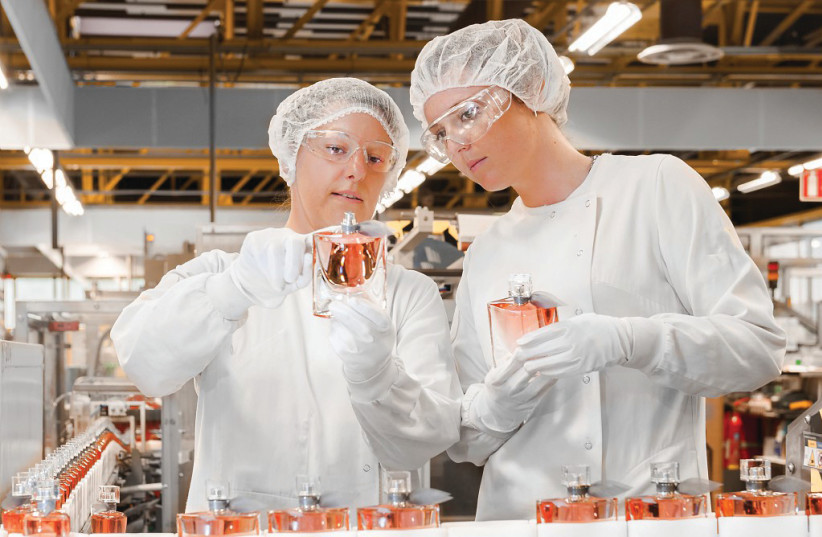Who reads through the list of ingredients when buying lipstick, shampoo or concealer? Does anyone you know check the ingredients included in their facial creams, serums or other beauty products? Probably not many. But this is changing. Transparency regarding the ingredients in beauty and grooming products is a trend that has been gaining momentum in recent years.
Consumers now have the power to make fact-based decisions. More and more consumers, especially the younger ones, are seeking to purchase products and services that are in line with their values, such as eco-friendly products, natural and organic ingredients, and no animal testing. Studies reveal that 94% of consumers believe that there is a need for more honesty and transparency on the part of brands regarding the ingredients in their products. Some 92% take into account the effect the ingredients might have on their health, and 89% want to know if the products are sustainable and ethical.
In addition, the coronavirus pandemic has accelerated the way consumers view sustainability, health, and transparency.
When it comes to health, the category of grooming and beauty products must receive special attention, since these are products that are applied to the skin. Today, there are many sources of information regarding the ingredients and formulas of beauty products, but not all of them are reliable. Concepts such as formula safety, transparency, and strengthening trust are no longer a luxury. They should be part of all products that are applied to the body.
There is an animated discourse around the safety of cosmetics, and the leading companies have a responsibility to lead the discourse and take action to increase consumer confidence. Apparently, a growing number of brands are conducting their own safety tests and relaying their findings directly to the consumer. The general public has the right to transparency, as personal grooming is a matter of trust and confidence in the products we use every day.
In this context, many companies are promoting greater transparency in everything related to the ingredients of their products, They are decreasing the number of ingredients and making them more natural. And, most importantly, they are being more transparent toward consumers. An example of this can be found in the L’Oréal Group, which recently announced its vision as the first cosmetics company in the world to commit to full transparency, safety, and green science.
What does a commitment to transparency mean?
The main idea of the commitment to transparency is to provide consumers with better and safer products, made with respect for the environment. At L’Oréal, for example, the move includes a significant transformation in its research and innovations, while adopting a green scientific approach.
By 2030, some 95% of the ingredients used in the group will be extracted from renewable plant sources, abundant minerals or circular processes; and 100% of the formulas will respect the marine environment.
A significant step in the process is a website called Inside Our Products, which uses terms from the world of consumerism. The site answers consumers’ questions regarding the materials included in formulas and product composition. The site has close to 1,000 registered ingredients and is currently available in 45 countries in eight languages.
The discourse regarding product transparency wasn’t created in a vacuum, of course, but it has been intensified at a time when protecting the earth is vital, with the coronavirus pandemic causing increased demand for products that are good for one’s health and safe for the environment. In this regard, L’Oréal is opening a new chapter in its research and development by turning nature into a driving force by creating renewable alternatives to oil-based components. The goal at L’Oréal is that by 2030, women and men around the world will be offered more efficient and safer cosmetics that respect the environment.
Transparency is essential to help consumers make informed choices
The transparency approach is also reflected at L’Oréal with the launch of its consumer application, which informs consumers about the environmental and the social impact of cosmetic products. Called PIL (product impact labeling), it will gradually include all the group’s brands. This is, in fact, a method for marking environmental and social impacts, which allows consumers to make purchasing decisions based on other parameters besides price, ingredients, etc. These parameters are becoming more and more valuable among consumers, especially the younger generation. This method allows them to make choices based on consumer awareness.
A new era in transparency and increased trust
It is important to remember that in the end, the desired change in terms of transparency in cosmetic products, which affects our health, is driven by the companies themselves. The large companies will steer the wheel, but the medium and small ones need to jump on the bandwagon and join the revolution. Of course, many more challenges are expected along the way, some of which lie in managerial approaches among decision-makers in the manufacturers of beauty products. The product transparency approach, be it in the field of biotechnology or any other field, is a value-based approach that respects the boundaries of the earth, and that requires a perceptual integration of this approach.
The launch of a site like Inside Our Products is another step that illustrates L’Oréal’s approach: to provide maximum transparency to all stakeholders, especially consumers. On the site, anyone interested in the composition of a product can find the most accessible and clear explanation, thus enabling them to know the source of the ingredients in the product they are using. The corona pandemic has demonstrated how important a product’s safety, quality, and components are. Therefore, this move is doubly important.
Consumers are demanding greater transparency from cosmetic brands. What does that really mean?
94% Honesty and transparency are consumers’ main demands
92% Brands must to provide more honesty and transparency about their products’ ingredients
89% I take into account the effect that products have on my health
85% Brands must declare if their products are sustainable and ethical
75% I take into account the effect products have on the planet
72% I like trying new or independent brands
47% I changed my buying habits in the past two or three years due to ethical and sustainability awareness
The big brands are more aware of sustainability than small or independent brands
Studies have also revealed that consumers today are looking for facts:
53% want information about the effect of a product’s ingredients on their health
50% want information about the effect of the ingredients on the environment
47% want information about the dangers of the ingredients in the products they buy
(CGF and Futerra x Savanta, October 2020.)
For more information: L’Oréal
This article was written in cooperation with L’Oréal

